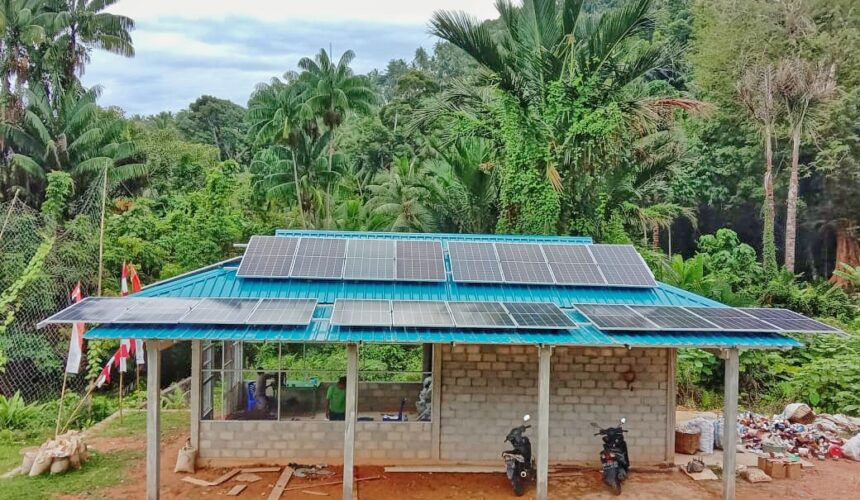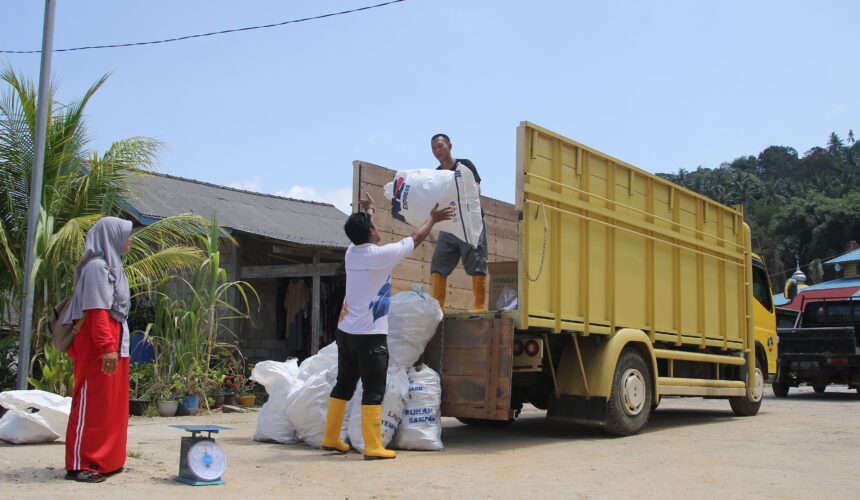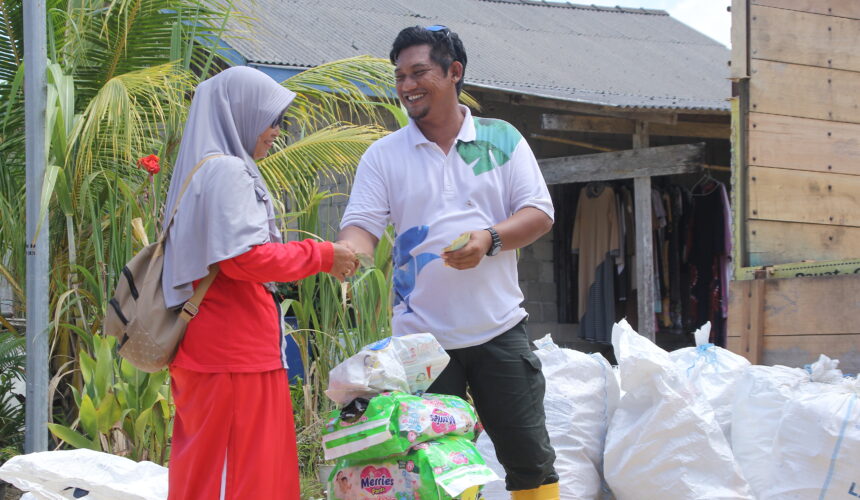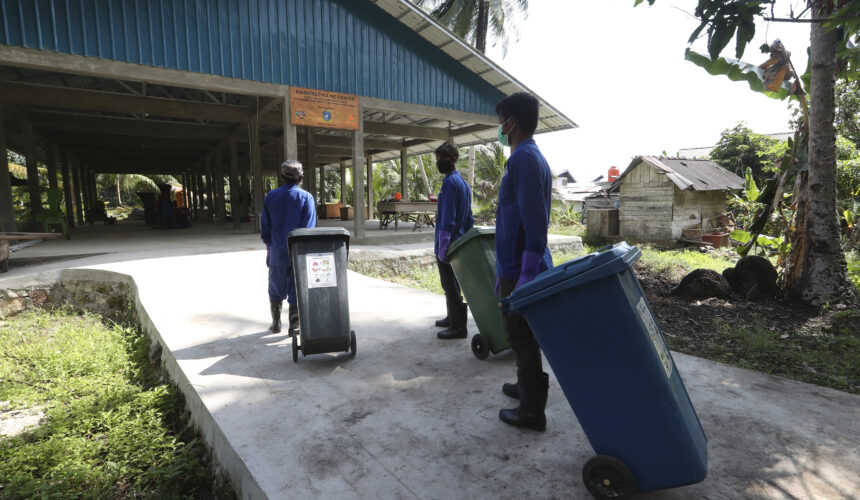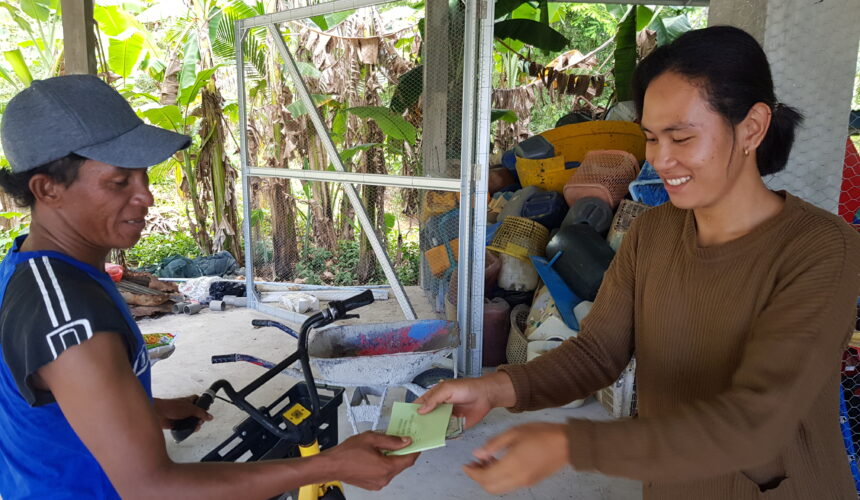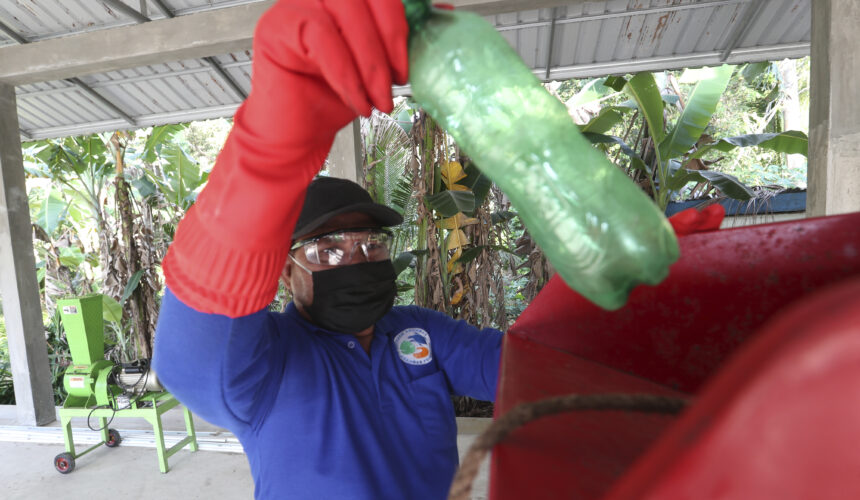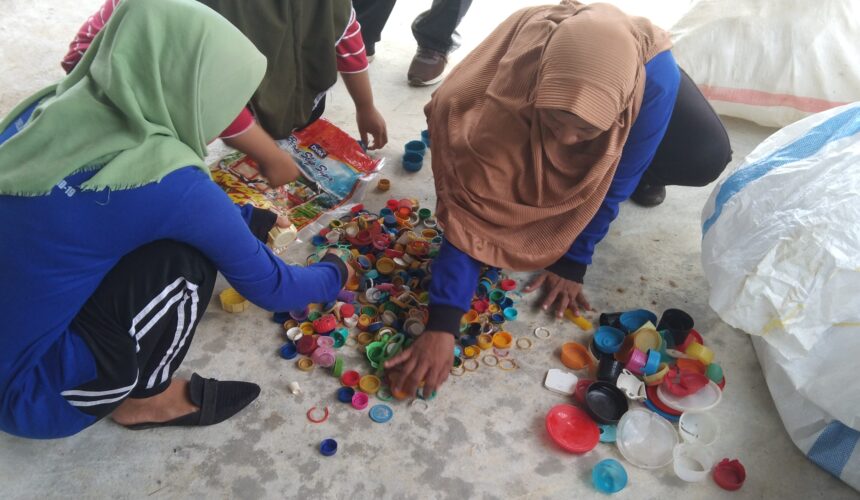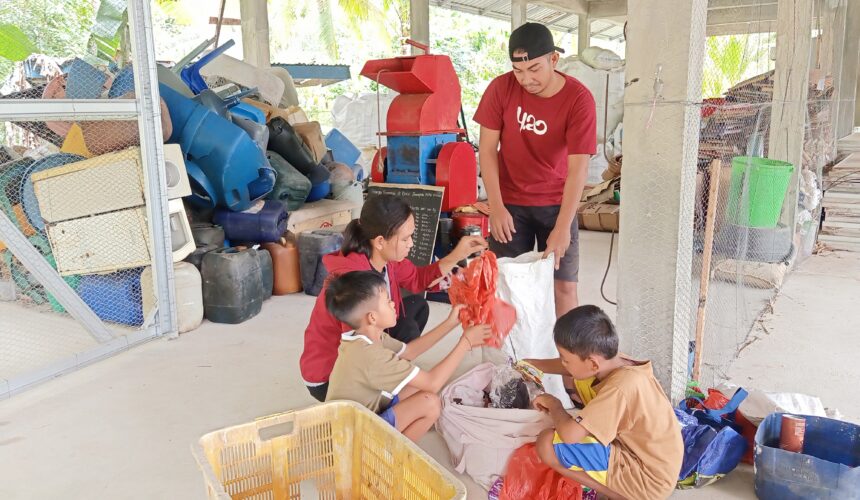Nestled between the Malaysian Peninsula and Borneo, the Anambas Archipelago is literally on the edge of Indonesia’s water.
Facing the wide-open seas, the Anambas Islands provide a panoramic view of blue seas with azure lagoons. Sadly though the Anambas is a huge waste contributor to the oceans in Indonesia when instead it could be a tropical paradise.
The initial visits to the villages highlighted an urgent need to address solid waste management, particularly concerning plastic. Many local communities were dumping waste into the ocean due to two primary factors: firstly, a lack of awareness about the importance of waste management and environmental preservation, and secondly, the absence of waste treatment facilities and infrastructure. Our Solid Waste Management (SWM) program was initiated in 2018, which has since evolved into a community-based Integrated Waste Management (IWM) initiative. Key additions include activities such as Waste Banks and upcycling. By adopting an integrated waste management approach, waste is processed and transformed into various higher-value products.
It is crucial to educate local communities, including young children and elders, on how to properly sort waste using three-compartment bins for organic, recyclable, and residue waste. The foundation also conducts various training sessions for local communities to address waste management issues and promote a circular economy.
In March 2021, we launched a Waste Bank (bank sampah) initiative in Kiabu Village to encourage local community participation in recycling and waste separation. This was the first Waste Bank established in the Anamabas Islands.
To expand the coverage of our Waste Bank, we acquired a pickup truck that visits neighboring villages weekly to collect waste from households and transport it to the nearest Waste Management Facilities.
Upcycling waste involves creating different products, such as reusable bags made from textile waste. All waste processing occurs at our Waste Management Facilities with active involvement from local communities, particularly Women’s Groups. Products from upcycling are sold to generate alternative income for local communities.
